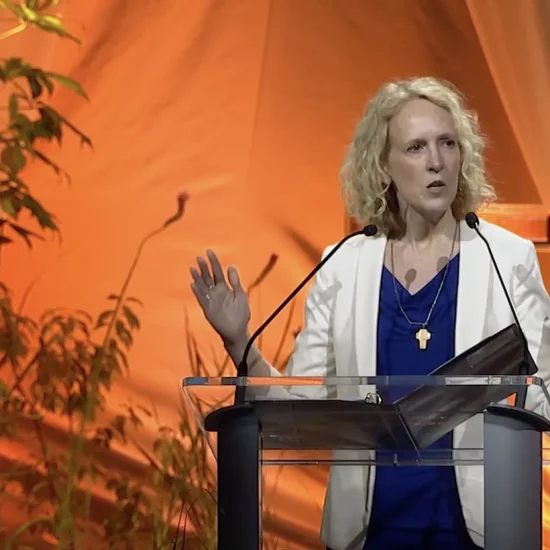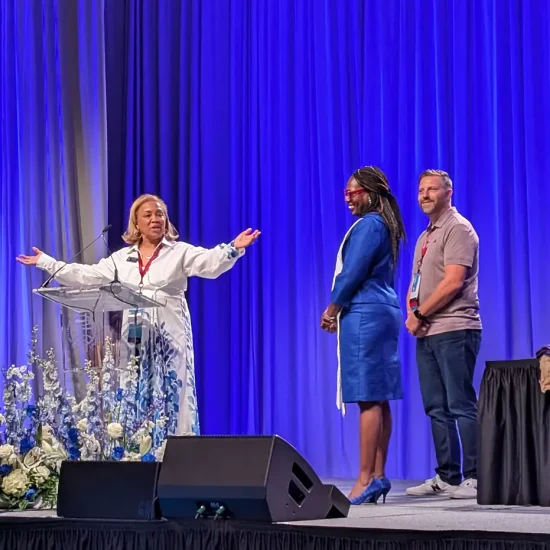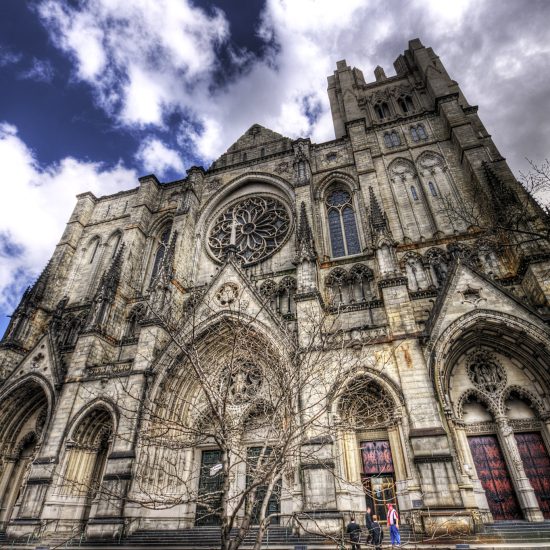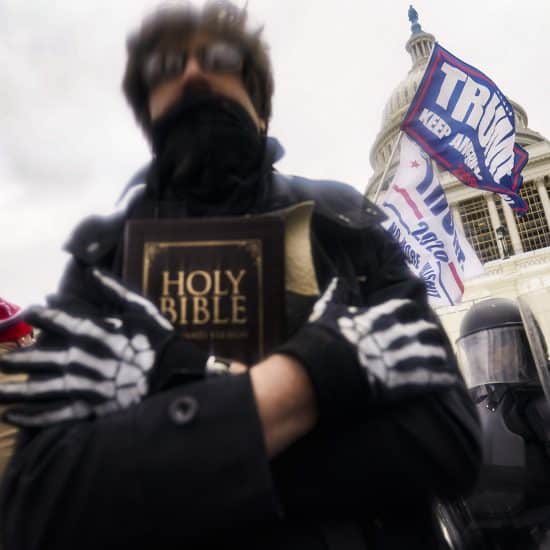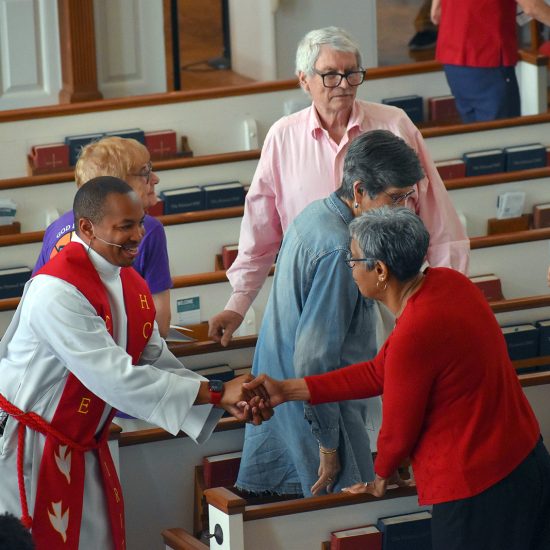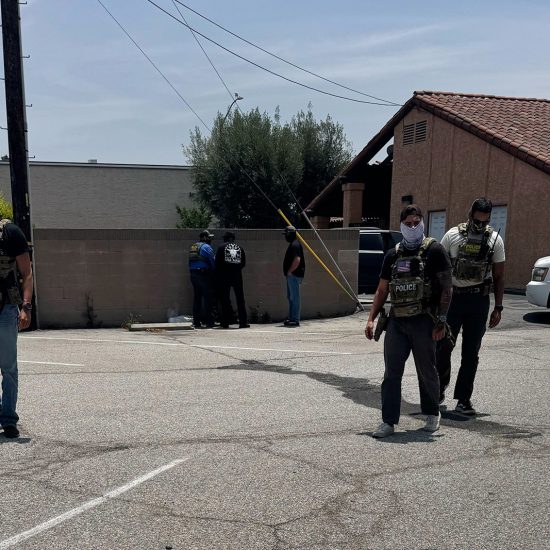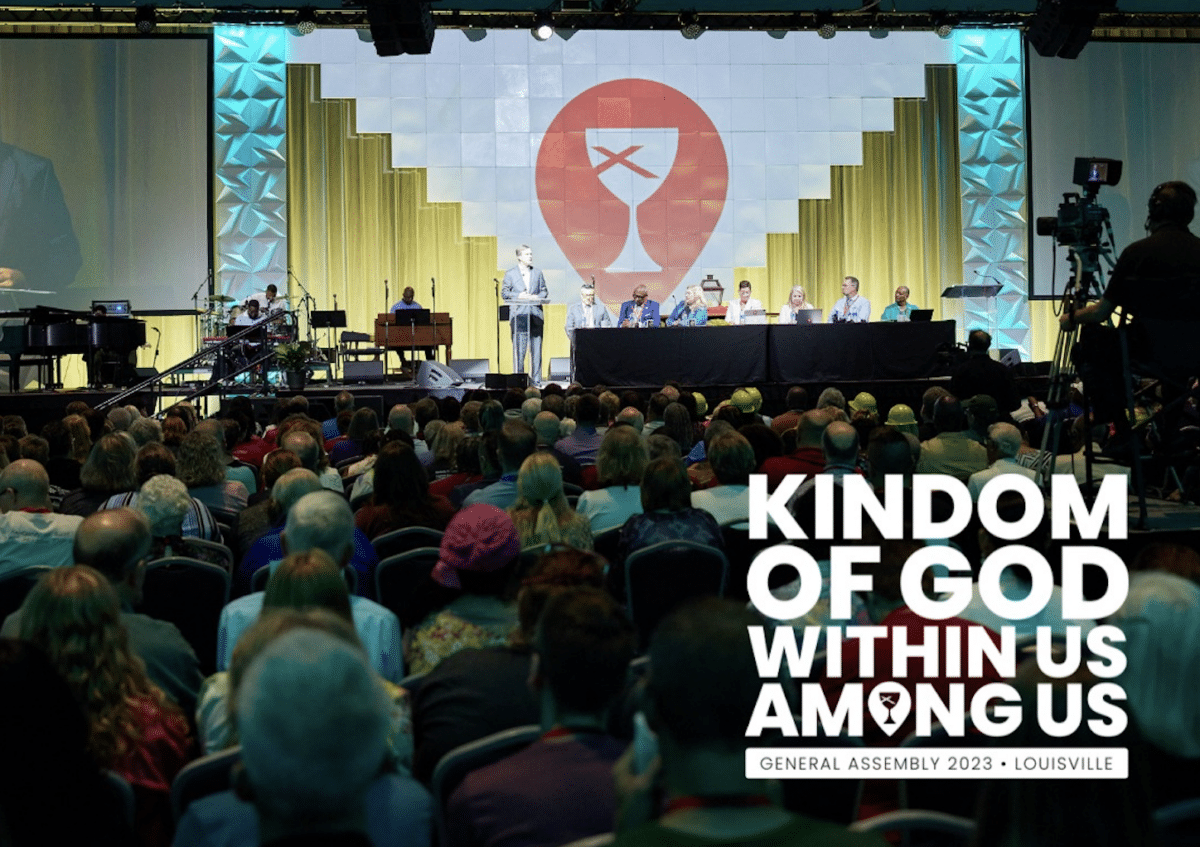
It is said that institutional religion is passé and irrelevant. These are indeed challenging times for religious institutions. We tend to make the news when a scandal hits or when religious leaders make outrageous statements. Mainline Protestantism once dominated the American religious scene, but that’s no longer true. The Christian Church (Disciples of Christ) is a rather small denomination, and yet we seem to punch above our weight. In 2005, we elected the Rev. Sharon Watkins as the first woman to lead a Mainline denomination. And in 2017, we elected the Rev. Terri Hord Owens as the first African American woman to lead a mainline denomination. Many have heard the name of the Rev. Dr. William J. Barber II — he too is a Disciple.

Robert D. Cornwall
While I don’t have that level of name recognition, I’m an ordained Disciples of Christ minister and board chair for the denomination’s Christian Unity and Interfaith Ministries. It is in that capacity that I participated in the 2023 General Assembly of the Christian Church (Disciples of Christ), which met in Louisville, Kentucky from July 29 to August 1. The theme for the Assembly (denominational gatherings like this need a theme) was “The Kindom of God; Within Us, Among Us.”
What follows is a personal reflection on what I saw happening, some parts of which I participated in. It needs to be said that people attend denominational gatherings like this for many different reasons, and Disciples gatherings include business — but also much more. I know that some denominational gatherings ask delegates to work from early morning to late at night on the business of the church. For some reason, we don’t have that much business to deal with. Perhaps that’s because we are, at our foundation, congregational. We can debate and vote on important matters, including matters of social justice, but congregations are free to adopt or reject what is voted on at the Assembly.
Nevertheless, we have taken up in the past and did take up during this assembly important issues and concerns, including Christian Nationalism (Beau Underwood and Brian Kaylor wrote in some depth about the discussions and votes taken on Christian Nationalism). We also took up an emergency resolution that called for the denomination to “Oppose anti-trans legislation and affirm the dignity of Transgender and Gender-diverse People.” Like the resolution opposing Christian Nationalism, it passed overwhelmingly. These are just two of several resolutions dealing with matters of social justice.
I’ve mentioned two resolutions that got the attention of the assembly, and I’ll return to the issue of Christian Nationalism and other matters of business in a moment. I would like to note that at least for the Disciples, our General Assemblies are a mix of business, worship, education, and fellowship. While our numbers are not as large as they were in years past, every congregation in the denomination can send at least two voting delegates to the Assembly. In addition, all ordained clergy with standing, including retired clergy with standing, have voting privileges. Thus, as I understand it, there were around 3,000 persons registered, though not all were voting representatives. This was my first General Assembly since 1997 that I didn’t attend as the pastor of a congregation. Although I’m now retired, I did attend as the chair of the board of the Disciples’ Christian Unity and Interfaith Ministries General Ministry. As such I spent time in our booth explaining our ministry.
I was also a participant in our CUIM dinner co-sponsored with the Disciples of Christ Historical Society. For readers of this newsletter, I will note that our speaker was Dr. Andrew Whitehead, an expert on the growth of Christian Nationalism, and author of the forthcoming book American Idolatry: How Christian Nationalism Betrays the Gospel and Threatens the Church. Again, when it comes to Christian Nationalism, the General Assembly overwhelmingly approved what I believe is a very powerful statement condemning Christian Nationalism. As with many resolutions, this has several “be it resolved” statements. The first of these statements declares that “the Christian Church (Disciples of Christ) denounces Christian Nationalism in all its forms as a distortion of the Christian faith, and commits to opposing it wherever it appears, for the sake of the gospel and the good of the human family.”
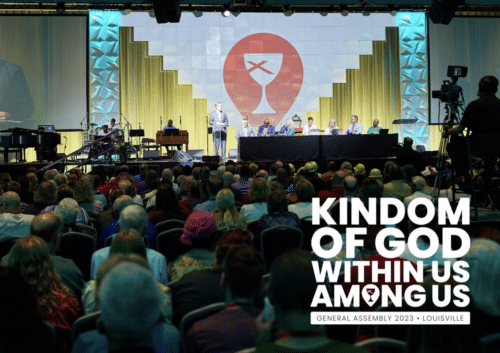
Opening ceremony of the 2023 General Assembly. Courtesy photo
While we addressed several social justice issues, the Disciples of Christ is a religious institution with structures and governance. Like many denominations, the Disciples have been experiencing membership decline for decades. Years ago, Herb Miller, a Disciples church growth expert, suggested that if trends in place in the 1970s continued we would cease to exist within forty years. Well, it’s been over forty years, and while we’re much smaller, we’re not yet extinct. Nevertheless, many of our structures were developed back in the 1960s when our membership stood above a million members. These were the halcyon days when Mainline Protestantism was cresting.
It has been suggested that the Disciples embraced full denominational status just as denominations began to go out of style. While that may be true, we are a denomination with a structure that needs fine-tuning from time to time. Recognizing that our structures were impinging on our ability to be flexible, especially in light of the COVID-19 pandemic that prevented us from meeting in person in 2021 (the last scheduled General Assembly) and that the current rules do not allow for online, or hybrid meetings, change was needed (the rules were suspended in 2021 to allow for an online meeting). It’s interesting that while we are flexible in our theology and spiritual practices, we discovered that our structures were less flexible.
As many denominations have discovered, in-person gatherings like our General Assembly are expensive. This is true for the denomination but also individual participants, especially if one doesn’t have a congregation able to pay their expenses (this became very real to me since I’m now retired and was responsible for the first time in a long time for my bills). As part of the changes made in the Design, our governing document was moving our in-person gatherings from biennial to triennial gatherings starting in 2028. These will also allow for hybrid participation in the business meeting. An additional change provides for annual online assemblies, at which every congregation will have three voting representatives (clergy will continue to have voting privileges).
We also voted to change the size and makeup of the General Board, so that it can serve as a working board. And due to the change in meeting schedules, the term of the General Minister was extended on a one-time basis from six to eight years. This was done for several reasons, but in part so that the General Minister and President could help guide the implementation of the new system. We needed to approve these structural changes before moving to re-elect the Rev. Terri Hord Owens as our General Minister and President, which we did (again overwhelmingly).
As they say the “devil is in the details.” Implementation of these changes will be challenging but if they can be effectively implemented, perhaps we will be better equipped as the Christian Church (Disciples of Christ) in the United States and Canada. As a friend noted during his sermon on Sunday morning during the Assembly, “Change is hard, stagnation is fatal.” As we navigate as a denomination in these very challenging times, we cannot afford stagnation.
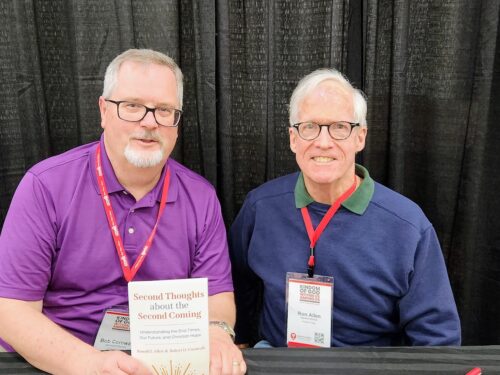
Robert D. Cornwall (left) with Ronald J. Allen (right) during their book signing for “Second Thoughts about the Second Coming” at the 2023 General Assembly.
As I noted at the top, each participant in the General Assembly will have a different take on things. That’s because we go for different reasons. I went in part because I have an official role with one of the General Ministries. I will also confess that “fellowship” or networking is also high on my list of reasons for being at the General Assembly, as these meetings provide opportunities to reconnect with old friends and colleagues and make new friends. So, for me, the Exhibit Hall often plays an important role in my time at the General Assembly as it often serves as a meeting point.
As I look back at this General Assembly, I have to wonder if it could be my last. If so, I am grateful that we got to regather after four long years. I don’t know what the future holds for my denomination or other denominations. The future will continue to pose challenges. We’ll have to adapt to these challenges. While our numbers have gotten smaller, we have become bolder in our message to the world. We might not receive the attention of some of the more conservative groups, many of which embrace Christian Nationalism and back anti-trans legislation, but we have made our witness known.
As a denomination that claims Christian Unity to be our Polar Star, we will need to ponder what that means for us in this age. What kinds of new configurations will emerge? Will we see more mergers of congregations? Will denominations become less parochial and embrace anew Jesus’s call for unity (John 17)? Of course, while Disciples have made Christian Unity at the center of our witness, it is not an end in itself. Christian Unity, if it is to have any value, must enhance our witness to the healing grace of God as reflected in Jesus’s proclamation of the Realm of God.
So, as the opening night preacher, Chaplain Major Owen Chandler, declared, the most important thing we need to know and embrace is this: “Love first, love always, and we’ll figure out the rest as we go.” That sounds like a plan that Jesus would approve of. The future remains unknown to us. The good news is that we do not approach the future alone. For even as Jesus called his disciples to be united, he also promised to send the Holy Spirit to be with them. It is the Spirit who guides and empowers us as take up each day as members of the Christian Church (Disciples of Christ), our calling to be “a movement of wholeness in a fragmented world.”
Robert D. Cornwall is an ordained minister in the Christian Church (Disciples of Christ). Now retired from his ministry at Central Woodward Christian Church (Disciples of Christ) of Troy, Michigan, he serves as Minister-at-Large in Troy. He holds a Ph.D. in Historical Theology from Fuller Theological Seminary and is the author of numerous books including his latest “Second Thoughts about the Second Coming: Understanding the End Times, Our Future, and Christian Hope” coauthored with Ronald J. Allen. His blog Ponderings on a Faith Journey can be found at www.bobcornwall.com.

